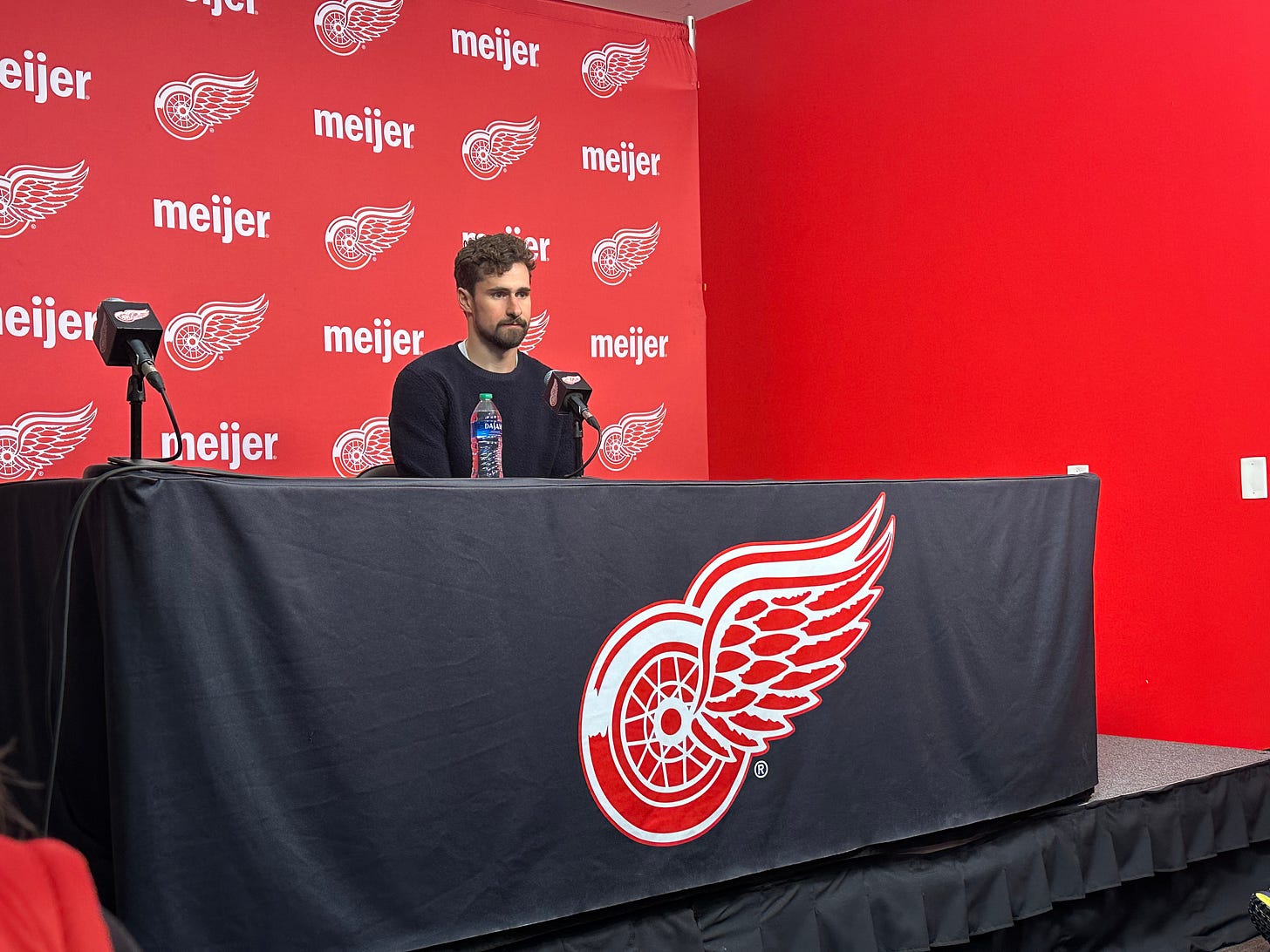Let's take a moment to remember the human element of this
Some quick thoughts on watching the Coyotes leave Arizona and on what Dylan Larkin shared with the media on Thursday.
Last night I stayed up late to watch the end of the Arizona Coyotes final game.
It was a sobering and sad watch. I think the Coyotes broadcast crew did a nice job not shying away from the disappointment or the reality that the team will be re-locating to Salt Lake City.
After the game ended, the broadcast continued to follow the reactions inside Mullett Arena. Fans wept and players spent extra time interacting on the ice.
Craig Morgan, who has covered the team better than anyone, summed it up extremely well in his column.
As I watched the final act play out on Wednesday, I thought how sad it was that owner Alex Meruelo missed all of those opportunities to connect with his stakeholders, just as he missed the game on Wednesday night. That investment could have paid dividends and maybe we would not have arrived at this sad place.
More than the results, the Coyotes experience was always about people. It was always about relationships. It was always about community.
That community won’t die with the death of the Coyotes, but there will be no gathering place to build more memories like this powerful, final night. The reality of that loss had me down until I ran into a longtime usher who urged me not to mope about what was lost.
“Remember what you gained,” she said.
It’s a wonderful column, you should take time to read the whole thing. It’s a good reminder that at the end of the day, in order for this whole rooting for laundry thing to matter, the humans themselves also have to matter.
That thought was already in my head before I went to the Detroit Red Wings exit interviews on Thursday. Then Dylan Larkin spoke about his season, and I was reminded again about the human element of this entire thing.
Larkin has endured one of the most difficult years of his life. Back in December, he shared publicly on social media that he and his wife had lost their unborn baby. He spent time away from the team to grieve, no one pressed him about it, and it’s a topic that was never really broached after that.
As someone who has dealt with something similar at one point in my life, I can only imagine what it was like for the Larkin family during the moments when several other player’s in Detroit had babies this season. Sure, you’re happy for your friends, but it makes your loss sting a bit more as a reminder of what didn’t happen.
When he spoke to the media on Thursday, Larkin lightly referred to the tragedy.
“That was probably one of the most difficult years of my life, you know I don’t like to talk about it much,” Larkin said. “And I thank you guys for for respecting for respell that … there was times where I was going through it and I felt like a needed space throughout. You know, the guys were so good to me. And maybe I wasn’t able to be the best or really be myself with all the things going on. I think the guys were so good to me, and my wife was really strong and to allow me to come back and focus on hockey.”
Larkin tries to live a private life, he’s an introverted professional athlete who values his privacy. But he’s also incredibly human, someone willingness to show weakness and be emotional at the same time.
We often talk about asking players to be less robotic and we allude to playing pranks or dressing snazzy. But part of being human is also normalizing that it’s ok to struggle with things, and that unlike robots, what happens at home and in life impacts our performance at our respective jobs.
When the Red Wings traded away Tyler Bertuzzi last year, Larkin wept at a press conference soon after. It was one his best friends, he was willing and comfortable enough in a public setting to be human about an emotional event.
The Red Wings re-build has left lots of scar tissue, particularly on its captain. He could have grown course and rough, become a bit of a prick like some other players have in tough times.
Instead Larkin has remained himself, quiet and honest off the ice, but human at the same time.
It’s an important thing to remember, because often we look at this sport with video game goggles. We propose hypothetical trades and talk about people getting fired like they’re chess pieces that can be move and sacrificed for a greater sporting goal.
We all do it, myself included, but when we go to far down that path we forget at the end of the day this is a game played by humans, and it only really matters because other humans are so heavily invested.



Love this article . Great reminder of the human side
Reminds me of Mush last year. He was so heavily criticized coming off of a summer when he lost his dad. Hard for anyone to compete at a high level dealing with that grief.